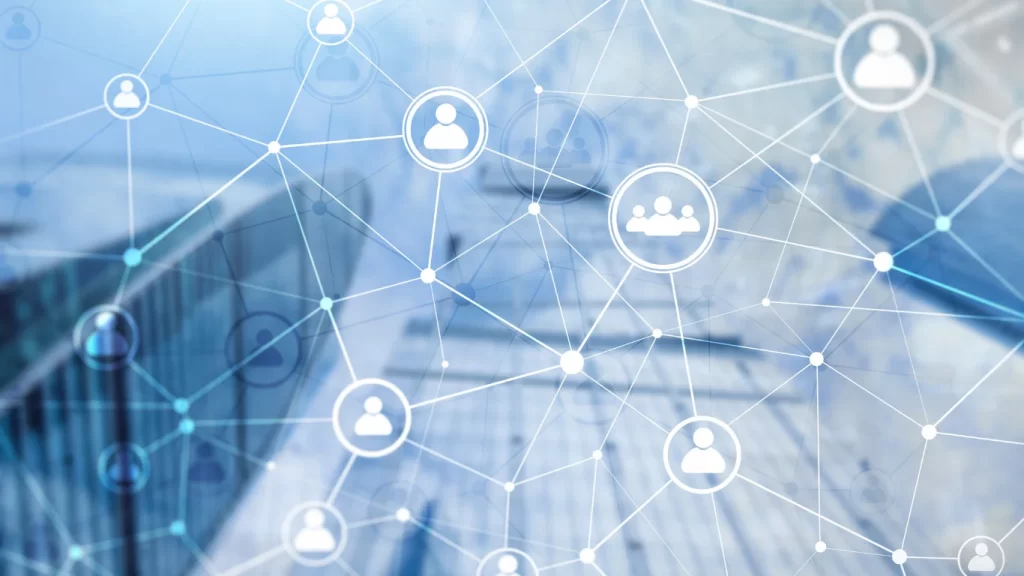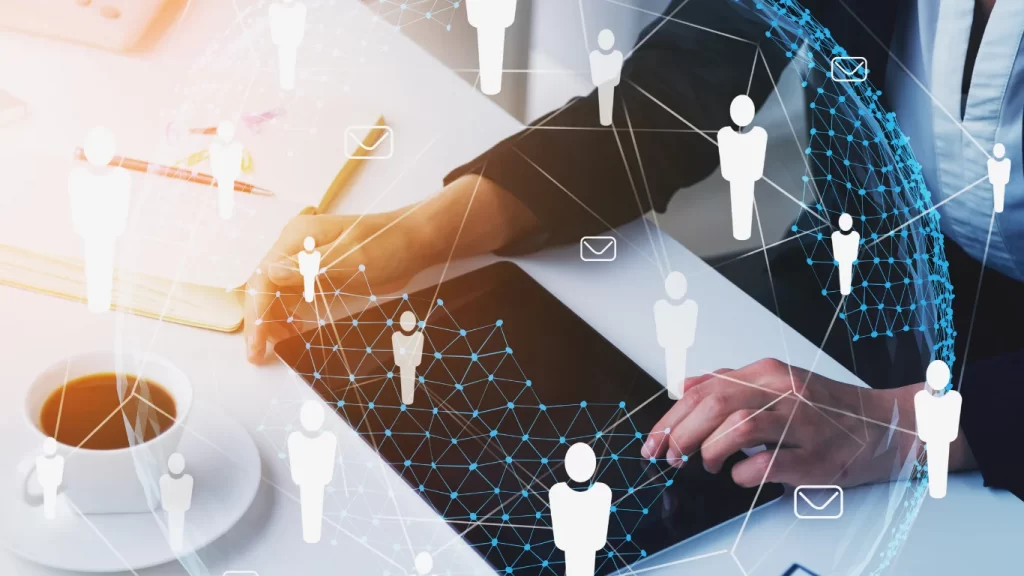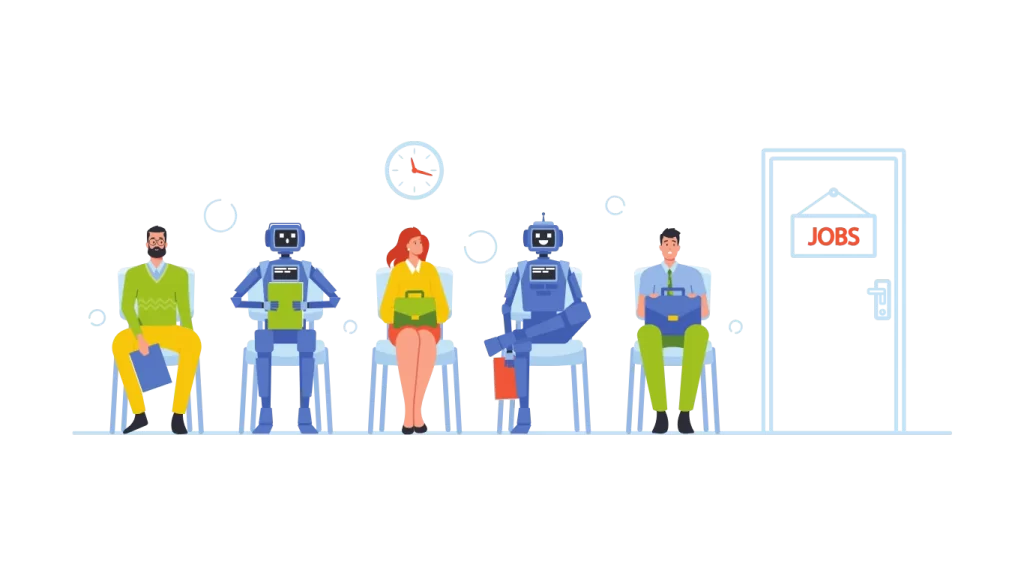Generative AI in human resources is setting the stage for a monumental shift in the HR landscape by 2024. With its capability to add trillions to the global economy, it’s astonishing that only a small percentage of organizations are currently harnessing its power. This transformative technology, encompassing generative AI in HR and HRM, is poised to revolutionize tasks from content creation to complex coding, making HR systems more intuitive and turning intricate people data into straightforward insights.
The article will explore the rise of Generative AI in human resources, highlighting its impact on revolutionizing recruitment, onboarding, and employee development. Readers will gain insights into how generative AI is empowering continuous learning, transforming performance management systems, and navigating the ethical implications. Furthermore, the discussion will extend to preparing HR for the future with generative AI, ensuring readers are equipped with knowledge on its practical applications, challenges, and the future trends shaping the HR domain.
The Rise of generative ai in human resources

As we move into 2024, generative AI in human resources is increasingly becoming a cornerstone i playing a pivotal role in transforming traditional HR processes into more efficient and intelligent systems. Here’s a closer look at the emerging trends:
- Generative AI as a Work Buddy: In the coming year, generative AI is set to act as a ‘work buddy’ for humans. This technology is not just an addition to the HR tech stack but a powerful tool that provides conversational insights from vast data pools, enhancing decision-making and operational efficiency.
- Adoption and Impact:
- Early Adoption Lessons: Organizations that swiftly adopted generative AI in 2023 learned valuable lessons. While some faced challenges, the overall consensus remains positive, emphasizing the importance of strategic implementation.
- Crucial for Success: A staggering 76% of HR leaders believe that failing to adopt AI within the next 12 to 24 months could result in their organization falling behind.
- Revolutionizing HR Tasks:
- Automation and Efficiency: Generative AI is expected to automate routine HR tasks, streamlining operations and allowing HR professionals to focus on more strategic aspects.
- Enhanced Interactions: The technology will also place a higher value on human-to-human interactions by handling repetitive tasks, thereby enriching workplace relationships.
Generative AI tools like ChatGPT are anticipated to redefine cross-functional tasks and HR roles, making them more efficient and focused on strategic initiatives. With 38% of HR leaders already exploring or implementing AI solutions to boost process efficiency, the future of HR in 2024 looks promising, driven by generative AI advancements.
Revolutionizing Recruitment and Onboarding

Generative AI in human resources is reshaping the recruitment and onboarding landscape in human resources, making processes more efficient and personalized. Here’s how:
- AI-Powered Recruitment Tools:
- Resume Screening: AI tools analyze vast pools of resumes, highlighting top candidates based on predefined criteria, ensuring a more efficient screening process.
- Candidate Matching: Machine learning algorithms improve over time by learning from past hiring decisions, enhancing the accuracy of candidate-job matching.
- Job Ad Optimization: AI algorithms enhance job ads to attract suitable candidates and screen resumes more efficiently, reducing unconscious bias.
- Engaging Potential Candidates:
- Chatbots: Equipped with natural language processing, chatbots interact with potential candidates, providing instant responses to queries and scheduling interviews, thereby improving the candidate experience.
- Personalized Outreach: Generative AI personalizes candidate outreach, suggesting alternative positions if the initial application isn’t a fit, broadening the scope of recruitment.
- Streamlining Onboarding:
- Automated Administrative Tasks: AI simplifies onboarding by automating tasks and generating personalized training programs, ensuring a smoother transition for new hires.
- Guidance Through Chatbots: New hires receive instant support and necessary information through AI-driven chatbots, making the onboarding process more engaging and informative.
Generative AI in human resources not only accelerates the hiring process but also ensures a more inclusive and unbiased recruitment strategy, ultimately enhancing both the candidate and employer experience.
Empowering Continuous Learning and Development

Empowering continuous learning and development in the workforce is a critical challenge that Australian employers face. Generative AI in human resources is set to transform this landscape by offering personalized and dynamic learning experiences. Here’s how:
- Personalized Learning Paths:
- AI algorithms analyze individual skills, preferences, and career aspirations to tailor learning experiences.
- Generative AI creates development plans focusing on performance, strengths, and weaknesses, enabling a more targeted approach to professional growth.
- Innovative Training Techniques:
- VR and AR for Immersive Learning: Applications powered by AI provide interactive training, making complex concepts easier to grasp.
- Rapid Prototyping and Content Creation: L&D teams use generative AI for creating course materials, assessments, and multimedia assets swiftly, enhancing the learning material’s relevance and engagement.
- AI Awareness and Ethical Use:
- All employees, including non-technical staff, receive training on AI awareness to ensure proficiency in engaging with generative AI tools.
- Coursework spans ethical AI use, data science fundamentals, and decision-making processes, with specialized content for technical roles including machine learning operations and coding languages.
This approach not only accelerates the learning process but also aligns with the evolving needs of the workforce, ensuring employees are equipped with the necessary skills and knowledge in an ever-changing work environment.
Transforming Performance Management Systems
Generative AI in human resources is revolutionizing performance management systems, making them more dynamic and insightful. Here’s a closer look:
- Real-Time Performance Tracking:
- AI algorithms monitor employee performance continuously, fostering a culture of improvement.
- Natural language processing (NLP) analyzes open-ended feedback for deeper employee insights.
- Data-Driven Decision Making:
- Predictive analytics forecast employee engagement trends, enabling proactive enhancement of workplace satisfaction.
- AI tools provide support for managers, aiding in tasks like career coaching and performance review drafting.
- Enhancing Employee Well-being:
- AI-driven platforms recommend personalized initiatives to boost morale and productivity.
- Generative AI chatbots engage employees directly, improving communication and engagement.
These advancements in generative AI are not just transforming how performance is managed but are also setting a new standard for employee engagement and satisfaction. By integrating these AI tools, HR professionals can navigate the complexities of modern performance management with ease, ensuring a more motivated and productive workforce.
Navigating the Ethical Landscape
Navigating the ethical landscape of generative AI in human resources (HR) necessitates a balanced approach between leveraging technological advancements and ensuring fairness, privacy, and transparency. Here are key strategies and considerations:
- Bias Mitigation and Diversity:
- Historical Data Review: Regularly audit historical data for biases that could influence AI decision-making.
- Diverse Training Data: Ensure training datasets are diverse and representative to avoid perpetuating past discrimination.
- Ongoing Training: Invest in continuous bias mitigation training for HR professionals to recognize and address biases in AI-driven systems.
- Data Privacy and Transparency:
- Robust Data Protection: Adhere to stringent data protection regulations, employing anonymization techniques and encryption measures.
- Transparent AI Processes: Maintain transparency in AI algorithms, offering clear explanations of their decision-making processes.
- Employee Consent and Awareness: Clearly communicate with employees about data collection and analysis, providing options to opt out of AI-driven processes.
- Accountability and Ethical AI Use:
- Regular Audits: Implement transparent and accountable AI systems, regularly audited for bias and explainability in decision-making.
- Ethical AI Policies: HR departments should set clear policies for ethical AI use, continuously monitoring and evaluating AI tools.
- Regulatory Compliance: Stay informed and compliant with upcoming regulations, such as the EU AI Act, to navigate the evolving ethical landscape effectively.
Implementing these strategies ensures that generative AI in HR not only streamlines operations but does so in a manner that upholds the highest ethical standards, fostering a culture of trust and transparency.
Preparing HR for the Future with GenAI

As generative AI (GenAI) continues to reshape the landscape of human resources, HR executives must embrace a proactive stance in preparing their workforce for the future. This involves a multifaceted approach centred around education, strategic implementation, and ethical considerations.
- Upskilling and Reskilling Initiatives:
- AI Literacy: Prioritize AI education across all levels of the organization to enhance productivity and job quality. This includes both foundational knowledge and advanced AI applications in HR tasks.
- Strategic Skill Development: Identify key areas where AI can augment human capabilities and focus on developing these skills among employees.
- AI Integration in HR Processes:
- Recruitment and Onboarding: Leverage AI-driven tools to enhance efficiency and fairness in hiring practices.
- Performance and Career Development: Utilize predictive analytics and AI algorithms to personalize career development plans and improve performance evaluation processes.
- Operational Efficiency: Automate routine HR tasks, such as payroll and benefits management, to allow HR professionals to concentrate on strategic goals.
- Ethical and Strategic Framework:
- Bias and Fairness: Implement continuous training and auditing mechanisms to ensure AI systems are unbiased and decisions are fair.
- Collaboration with IT: Forge a strong partnership with IT departments to establish a strategic roadmap for AI implementation, ensuring alignment with business objectives and ethical standards.
By focusing on these areas, HR executives can ensure their teams are not only prepared for the challenges and opportunities presented by GenAI but are also positioned to lead the way in ethical, efficient, and innovative HR practices. Generative AI in human resources is not going anywhere anytime soon.
Conclusion
The exploration of generative AI in human resources reveals a transformative horizon for the HR industry by 2024, setting a new benchmark in recruitment, onboarding, employee development, and performance management. Through strategic implementation and ethical application, organizations stand at the cusp of revolutionizing HR operations, enhancing efficiency, and fostering a more inclusive and productive workforce. This evolution emphasizes not only the potential for generative AI to elevate the human resource domain but also underscores the criticality of navigating its ethical implications to ensure fairness, privacy, and transparency in AI-driven processes.
As we move forward, the significance of preparing HR professionals for this shift cannot be overstated. A focus on upskilling, ethical AI use, and strategic AI integration into HR processes will be paramount in harnessing the full potential of generative AI. By acknowledging the challenges and embracing the opportunities presented, the future of HR is poised to be more dynamic, insightful, and empowered, heralding a new era of operational excellence and strategic human resource management that is both innovative and ethically grounded.





